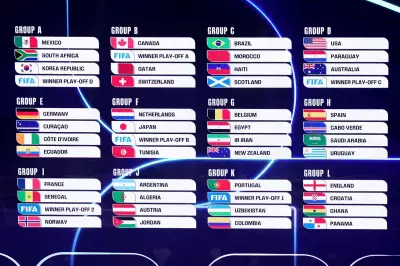
In a dramatic move that reshapes the future of professional rugby, the proposed R360 breakaway league has been dealt a potentially fatal blow after its official application was abruptly withdrawn from World Rugby.
The sport's global governing body confirmed the stunning development, effectively shutting the door on the controversial competition that promised to revolutionise the club game. The withdrawal represents a monumental victory for World Rugby's authority and a crushing defeat for the financiers and clubs behind the rebel project.
A Stunning Rejection for the Rebel League
Sources close to the negotiations reveal that World Rugby's approval was never a foregone conclusion. The governing body had raised significant and ultimately insurmountable concerns regarding the league's structure, its impact on the international calendar, and its commitment to the global growth of the sport beyond a select few nations.
This formal rejection prevents the R360 league from accessing the top-tier players and crucial international windows it desperately needed to be a viable product. Without World Rugby's sanction, the league faces an impossible battle for legitimacy and talent.
Uncertain Future for Clubs and Investors
The collapse of the application leaves the founding clubs—reportedly including Premiership giants Saracens and Exeter Chiefs, alongside French powerhouses—in a state of limbo. Having privately agreed to join the breakaway, they now face the prospect of remaining within the traditional structures of the Premiership and Top 14.
Furthermore, the multi-million pound investment from backers, believed to be based in the United States and the Middle East, is now under severe threat. The entire financial model of the R360 league was predicated on World Rugby's approval, leaving its future in grave doubt.
World Rugby Stands Firm
World Rugby's firm stance sends a powerful message about its control over the sport's ecosystem. By rejecting the breakaway, it has successfully defended the sanctity of the international game and the broader calendar that includes competitions like the Six Nations and the Rugby Championship.
A statement from the governing body emphasised its commitment to a model that benefits all unions and tiers of the game, not just a wealthy few. This decision underscores their prioritisation of the sport's long-term health over a short-term financial gain for a small group of elite clubs.
The fallout from this decision will ripple across the rugby world for months to come, cementing World Rugby's power and likely ending the most significant threat to its authority in the professional era.





